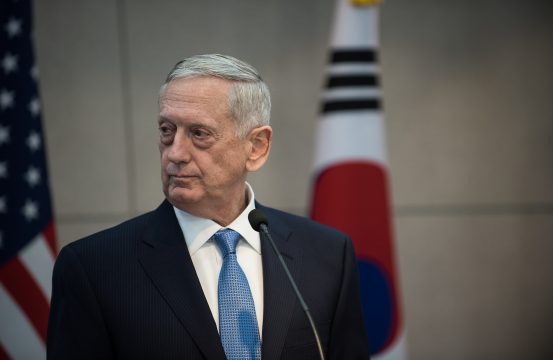 I’d recently lamented in these pages that the Trump administration needed to articulate a clear policy on the South China Sea disputes, or at least reiterate that nothing had changed on that front between administrations. This was especially necessary given Press Secretary Sean Spicer’s muddying of the waters with an unclear answer on the subject when he was asked about it on January 24.
I’d recently lamented in these pages that the Trump administration needed to articulate a clear policy on the South China Sea disputes, or at least reiterate that nothing had changed on that front between administrations. This was especially necessary given Press Secretary Sean Spicer’s muddying of the waters with an unclear answer on the subject when he was asked about it on January 24.
Now, Trump’s defense secretary, Jim Mattis, has offered the first high-level official articulation of what appears to be a cogent set of priorities from the new U. S. administration on the South China Sea. Mattis addressed the subject when asked about it by a reporter at a joint press conference with his Japanese counterpart Tomomi Inada while in Tokyo on his first visit abroad, which also included a stop in Seoul.
The good news for regional states — but perhaps less so for China — is that U. S. policy toward the South China Sea appears to be unchanged for now.
Mattis noted that countries have “watched in the South China Sea, as China has shredded the trust of nations in the region, apparently trying to have a veto authority over the diplomatic and security and economic conditions of neighboring states.” Mattis added that the “point behind a rules-based international order” was that countries don’t settle disputes by “military means and occupying land that is subject to question.”
While he didn’t directly clarify that the United States would continue to hold to its old policy of not taking a position on the sovereignty of individual features, Mattis hinted that this policy would remain in place, noting that disputed features shouldn’t be occupied, “to say the least about who actually owns it, or is it international waters.”
Critically, in what can be seen as a high-level repudiation of a proposal put forward by Trump’s secretary of state, Rex Tillerson, during his confirmation hearing, Mattis concluded that the United States did “not see any need for dramatic military moves at all.” Mattis added that the South China Sea was an issue “best solved by the diplomats.






